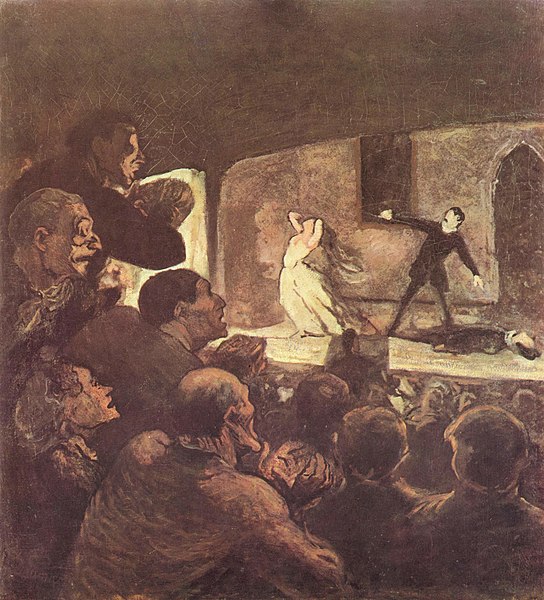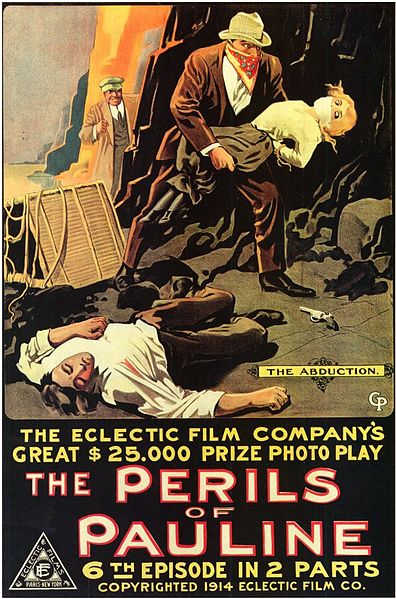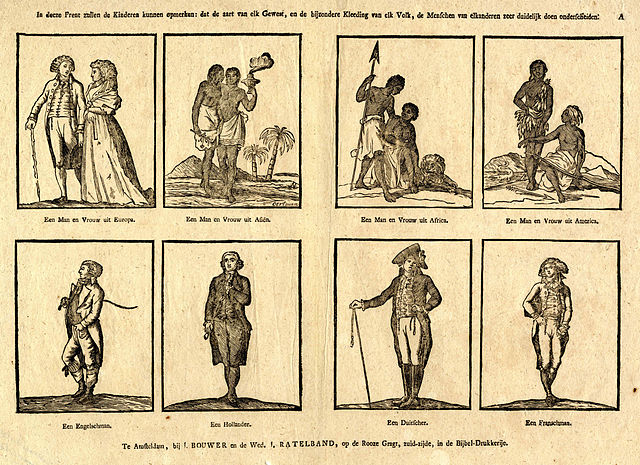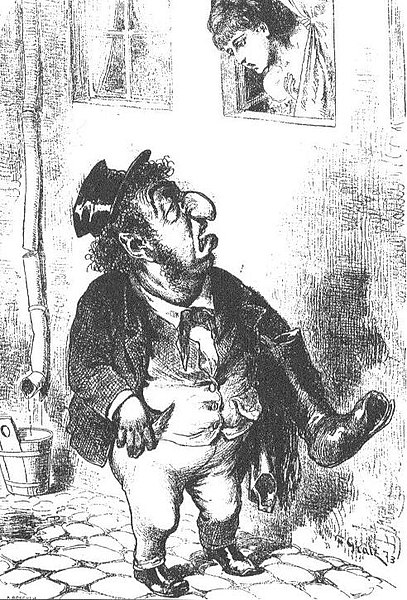A modern melodrama is a dramatic work in which the plot, typically sensationalized and for a very strong emotional appeal, takes precedence over detailed characterization. Melodramas typically concentrate on dialogue that is often bombastic or excessively sentimental, rather than action. Characters are often flat, and written to fulfill stereotypes. Melodramas are typically set in the private sphere of the home, focusing on morality and family issues, love, and marriage, often with challenges from an outside source, such as a "temptress", a scoundrel, or an aristocratic villain. A melodrama on stage, filmed, or on television is usually accompanied by dramatic and suggestive music that offers cues to the audience of the drama being presented.
Mélodrame painted by Honoré Daumier between 1855 and 1860, depicting a typical Parisian scene as was the case on Boulevard du Temple.
Poster for The Perils of Pauline (1914), a classic melodramatic film series
In social psychology, a stereotype is a generalized belief about a particular category of people. It is an expectation that people might have about every person of a particular group. The type of expectation can vary; it can be, for example, an expectation about the group's personality, preferences, appearance or ability. Stereotypes are often overgeneralized, inaccurate, and resistant to new information. A stereotype does not necessarily need to be a negative assumption. They may be positive, neutral, or negative.
An 18th-century Dutch engraving of the peoples of the world
Police officers buying doughnuts and coffee, an example of perceived stereotypical behavior in North America
An antisemitic 1873 caricature depicting the stereotypical physical features of a Jewish male
A magazine feature from Beauty Parade from March 1952 stereotyping women drivers. It features Bettie Page as the model.






